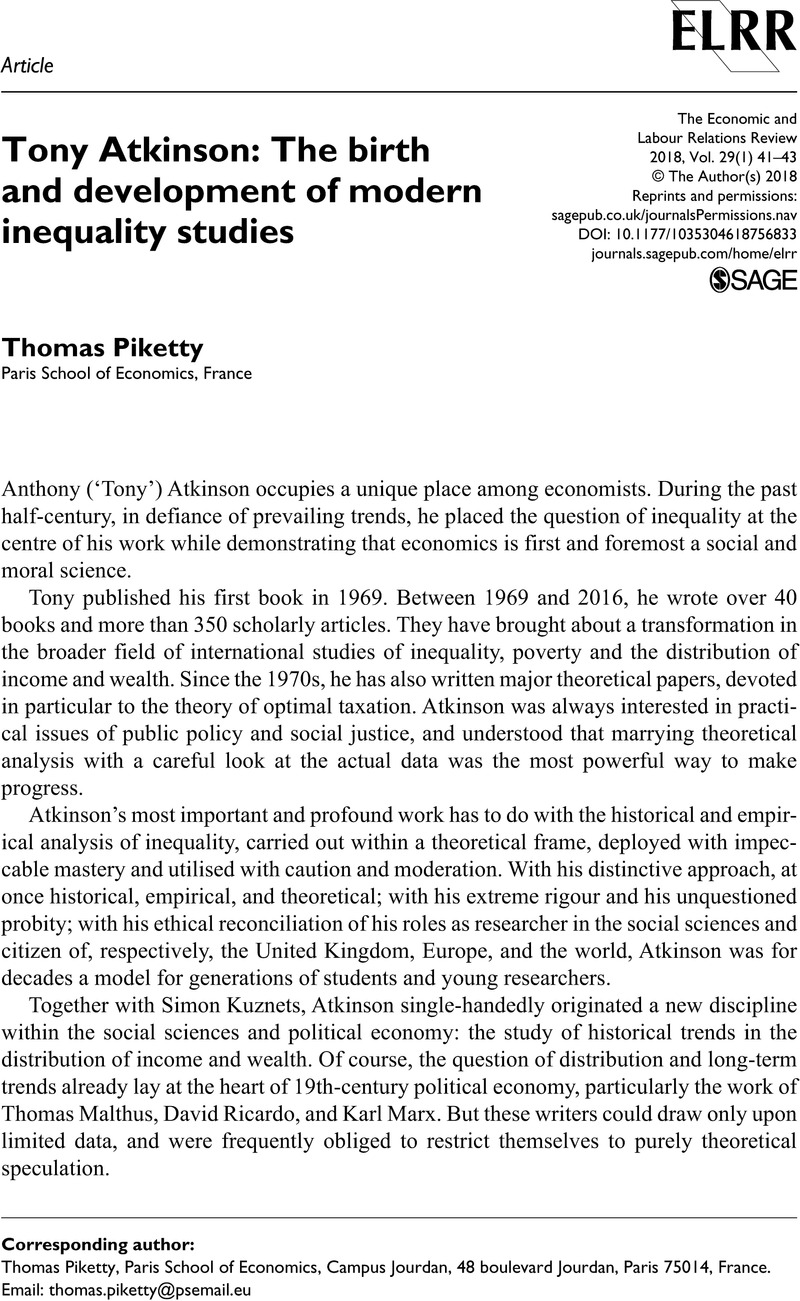No CrossRef data available.
Article contents
Tony Atkinson: The birth and development of modern inequality studies
Published online by Cambridge University Press: 01 January 2023
Abstract
An abstract is not available for this content so a preview has been provided. Please use the Get access link above for information on how to access this content.

- Type
- Articles
- Information
- The Economic and Labour Relations Review , Volume 29 , Issue 1: Symposium on inequality in honour of AB Atkinson , March 2018 , pp. 41 - 43
- Copyright
- Copyright © The Author(s) 2018
References
Atkinson, AB (2015) Inequality – What Can Be Done? Cambridge, MA: Harvard University Press.CrossRefGoogle Scholar
Atkinson, AB, Harrison, AJ (1978) The Distribution of Personal Wealth in Britain: The Distribution of Personal Wealth in Britain. Cambridge, NY: Cambridge University Press, 1978.Google Scholar
Atkinson, T, Piketty, T (2015 [2011]) World Wealth and Income Database. Paris: Paris School of Economics.Google Scholar
Kuznets, S (Assisted by Jencks E) (1953) Shares of Upper Income Groups in Income and Savings. Washington, DC: NBER.Google Scholar
Piketty, T (2001) Les hauts revenus en France au 20e siècle. Inégalités et redistributions 1901-1998. Paris: Grasset.Google Scholar
Piketty, T (2014) Capital in the 21st Century. Cambridge, MA: Harvard University Press.Google Scholar


